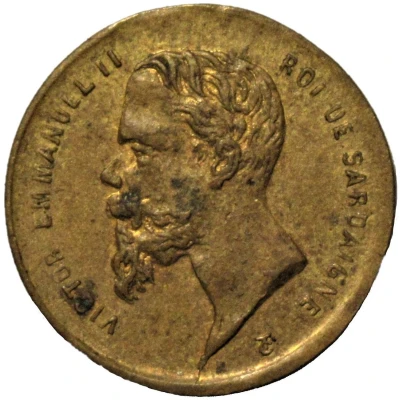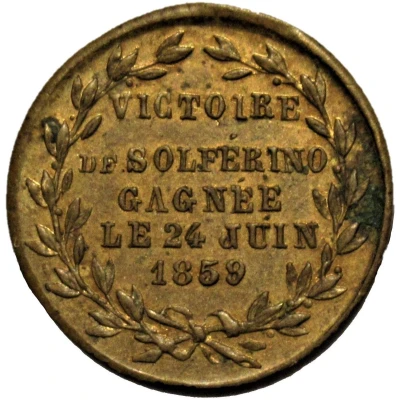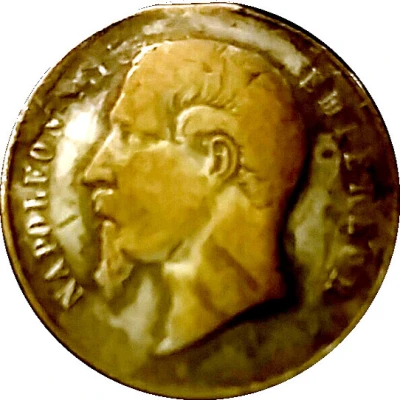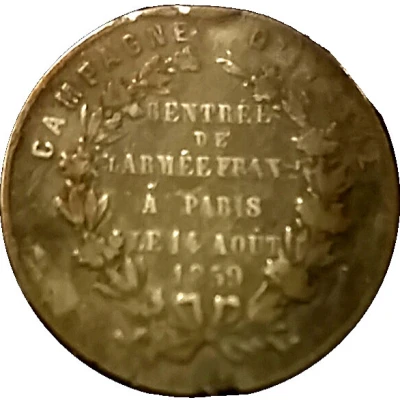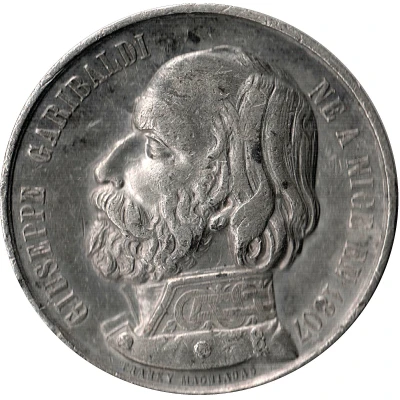
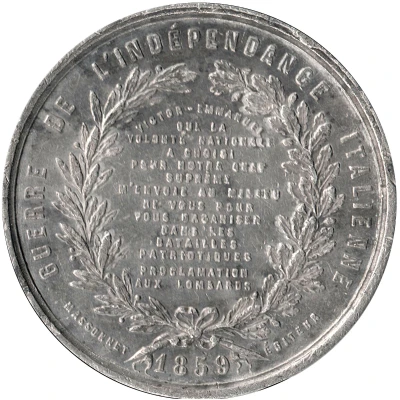

© SStefanov
Medal - Giuseppe Garibaldi Franky Magniadas - Massonnet Editeur
1859 year| Silver plated bronze | 55 g | 50 mm |
| Location | France |
|---|---|
| Issuing entity | Massonnet Éditeur |
| Emperor | Napoleon III (Napoléon III) (1852-1870) |
| Type | Commemorative medals › Personality medals |
| Year | 1859 |
| Composition | Silver plated bronze |
| Weight | 55 g |
| Diameter | 50 mm |
| Shape | Round |
| Technique | Milled |
| Orientation | Medal alignment ↑↑ |
| Demonetized | Yes |
| Updated | 2024-11-12 |
| Numista | N#162728 |
|---|---|
| Rarity index | 97% |
Reverse
Inscription around and within wreath.
Script: Latin
Lettering:
Guerre De l’Independence Italienne
VICTOR-EMMANUEL
QUI LA
VOLONTE NATIONALE
A CHOISI
POUR NOTRE CHEF
SUPREME
M’ENVOIE AU MILLIES
DE VOUS POUR
VOUS ORGANISER
SANS LES
BATAILLES
PATRIOTIQUE
PROCLAMATION
AUX LOMBARDS
Massonnet Editeur
1859
Edge
Plain
Comment
Signed by Franky Magniadas - Massonnet EditeurHe commanded and fought in many military campaigns that led eventually to the Italian unification. In 1848, the provisional government of Milan made Garibaldi a general, and in 1849, the Minister of War promoted him to General of the Roman Republic to lead the Expedition of the Thousand on behalf and with the consent of Victor Emmanuel II. His last military campaign took place during the Franco-Prussian War, as commander of the Army of the Vosges.
Garibaldi was very popular in Italy and abroad, aided by exceptional international media coverage at the time. Many great intellectuals of the time, such as Victor Hugo, Alexandre Dumas, and George Sand, showered him with admiration. The United Kingdom and the United States helped him a great deal, offering him financial and military support in difficult circumstances. In the popular telling of his story, he is associated with the red shirts that his volunteers, the Garibaldini, wore in lieu of a uniform.
